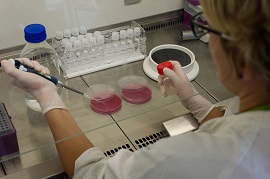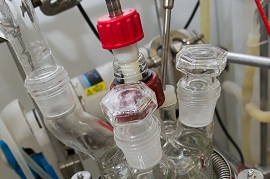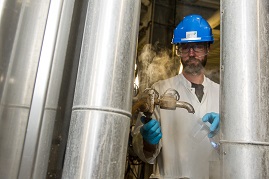Development of industrial processes
From bacterial strains to industrial fermenters, what are ARD's secrets for rapid process optimisation?

Before putting in place a strategy for scaling up the production of a new molecule or product, several steps are needed to ensure the project’s viability. From the laboratory to the industrial fermenter, ARD follows a succession of innovative industrial processes to ensure optimal cost management.
The development of industrial processes: a key economic challenge
Managing the technological and financial risks of bringing a new product to market, as well as optimising the lead time, are major challenges for project sponsors and manufacturers. Before large-scale production, the need to test fermentation and purification processes at pilot stage and with a demonstration plant is very costly and requires specific high-tech equipment that is capable of perfectly reproducing industrial biotechnology processes. ARD specialises in scaling up production and is uniquely capable of helping its customers progress from the R&D stage to the industrial prototype stage.
From microbiology to the pilot stage
ARD has been developing industrial biotechnology processes for more than 30 years. Its expertise and its facilities enable it to scale up even the most innovative projects. From the verification of first principles in the laboratory to the development and transfer of a process that will be profitable at industrial scale, all of ARD's technical services work together.
To ensure optimum project management, ARD has fermenters of various sizes that make it possible to very precisely extrapolate the process from the pilot stage to the industrial demonstration plant before scaling up to industrial production.
At the gates of the demonstration plant
Going through the pilot stage is vital to demonstrate the feasibility and profitability of a product at industrial scale. This stage confirms the most suitable process. For this, ARD has a 2,000 m² pilot hall. This facility boasts a wide variety of versatile and mobile equipment that enables us to test combinations of unit operations with a view to defining the most efficient process and facilitating scale-up to industrial production.
In order to further secure bioprocesses, ARD built BioDémo, an industrial demonstration plant that mimics the conditions of the first full-scale production runs, while limiting the risk for the project sponsor.





